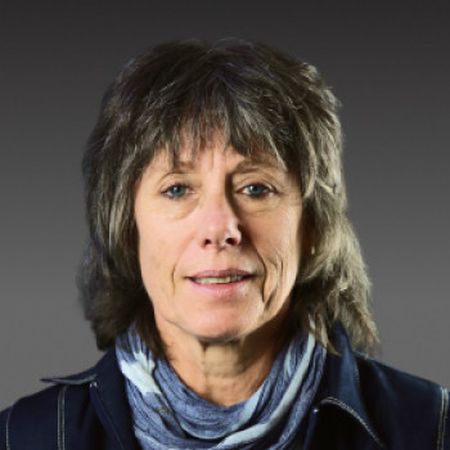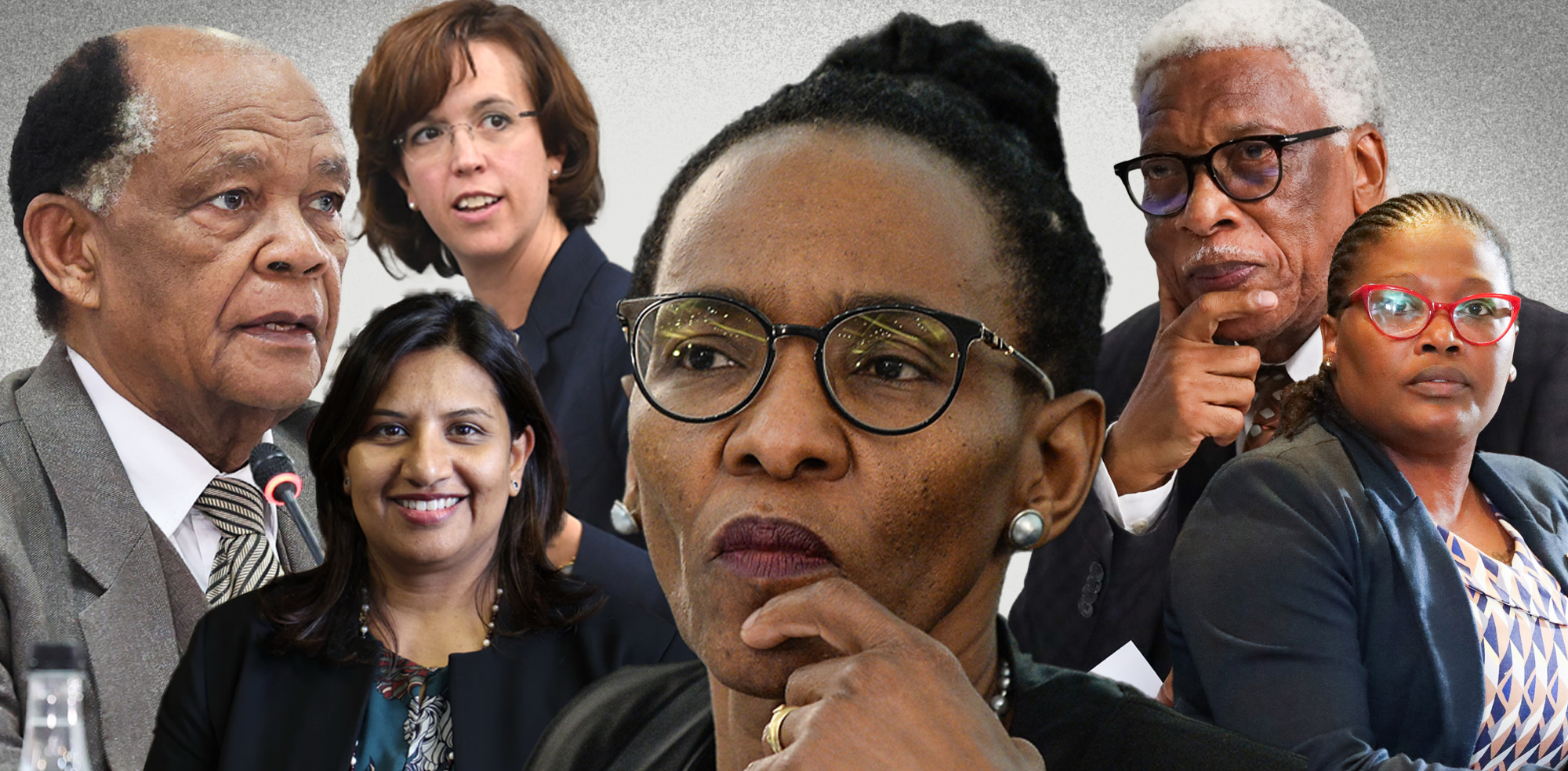
Mid-year in 2025, two paths diverged in the judiciary and legal profession. Neither was a road less travelled. And they were lined on either side with eggplant and peach emojis.
In August, three-quarters of the way into Eastern Cape Judge President Selby Mbenenge’s deeply humiliating sexual harassment Judicial Conduct Tribunal, a new Sexual Harassment Policy for the judiciary was announced.
In August, on Women’s Day, Chief Justice Mandisa Maya introduced the policy, an announcement that could not have been more timeous after “years of urging”, as she noted.
Read more: New judiciary sexual harassment policy must be a living document if it is to have impact
Advocacy group Judges Matter have pondered whether panel chairperson, retired judge Bernard Ngoepe, will consider the policy in deciding Mbenenge’s fate, which is yet to be decided.
Gravitas of the moment
Former court secretary Andiswa Mengo’s legal representative, Advocate Nasreen Rajab-Budlender, planted a seed and urged the tribunal panel, in her closing argument, to consider the principles of the policy in assessing Mbenenge’s conduct.
She acknowledged, however, “the long-standing principle of non-retrospectivity” — that a law cannot punish conduct which occurred prior to its enactment. Mbenenge’s legal representative, Muzi Sikhakhane, argued the same.
Bear in mind that in 2023 a Judicial Conduct Committee found a prima facie case of gross judicial misconduct and appointed the Judicial Conduct Tribunal. The events took place between June 2021 and November 2022.
Will Ngoepe grasp the gravitas of the moment?
Not the only one
As advocacy group Judges Matter noted, while Mbenenge’s is the most high profile, it is not isolated.
KwaZulu-Natal Regional Court President Eric Nzimande currently faces more than 100 disciplinary charges before the Magistrates Commission, some relating to sexual harassment and extortion. In 2024, Parliament impeached former magistrate Mziwonke Hinxa for sexual harassment.
In May and June this year, Advocate, the South African Bar journal, an essential read edited by Franny Rabkin, conducted a national survey at all General Council of the Bar of South Africa-affiliated bars on sexual harassment in the profession.
Based on a 2019 survey conducted by the International Bar Association, adapted and narrowly tailored for the advocates profession, the questionnaire yielded a total of 205 responses, with results higher in some bars than others.
Silence as a tactic
Men and women responded, with women making up 58% (118) and men 48% (at 82). Azraa Vally, of the Pretoria Bar, noted that both men and women were affected, though not equally and that “silence remains the most common survival tactic”.
The International Bar Association’s 2019 report “Us Too? Bullying and Sexual Harassment in the Legal Profession” revealed that 43% of women and 12% of men in South Africa’s legal field reported experiencing sexual harassment at work, Vally noted.
These figures were notably higher than global averages and painted “a sobering picture of a profession struggling to live up to the ideals it espouses”.
Two roads are converging. Will it be the one less travelled? Apparently that is the one that makes the biggest difference.
Kate Hofmeyr SC of the Johannesburg and Cape Bars
Those who witnessed her at work as an evidence leader at the Zondo Commission of inquiry into State Capture, will recall advocate Kate Hofmeyr’s cross-examination of the now deceased, former SAA chairperson Dudu Myeni, who, under pressure, rendered the classic: “May I not respond, chairperson, in case I incriminate myself.”
Read more: ‘May I not respond, chairperson, in case I incriminate myself’
Hofmeyr was one of the women in the Advocate survey who was prepared to be identified and who shared her experiences of being harassed. We share it here:
“In my 17 years at the Bar, I have experienced sexual harassment twice. One incident occurred early in my career, and the other, more recently, after a 15-year gap.
“I share these experiences not because I acted against them at the time; I didn’t. I spent years telling myself that my silence after the first incident was due to my newness at the Bar and my relative lack of power or influence.
“But when the second occurred, I was already a silk. My inaction, then, cannot be explained away by my newness or inexperience.
“I have reflected deeply on why I remained silent, particularly on the last occasion. I think it is because I am still afraid of how power plays out in this system and how I am perceived.
“My hope, in writing this piece under my name, is that women will draw strength from it. The more openly we speak about these incidents, the stronger we will become in confronting them.
“The first incident took place in my second year of practice. I was meeting a new attorney for the first time.
“I had been notified by reception that he had arrived and was coming down in the lift to see me, so I went to the entrance to meet him. My plan was to walk him down to my chambers, just as I’d seen my pupil-mentor do many times before.
“I greeted him, shook his hand, and then proceeded in front of him down the passage to my chambers.
“I then paused at the door to signal that this was where we would be having the meeting and as he walked past me into the room, he slid his hand on the base of my back along the line of my underwear.
“There was no warning and not even a moment’s pause after he had done it. But he had done it.
“This attorney, whom I’d never met before — a man old enough to be my father — had unmistakably laid his hand on me as he entered my chambers to consult with me about the law.
“I remember my head spinning for the first few minutes of the meeting. I asked myself how on earth it could have happened.
“Was there something I had done to signal that it was acceptable for him to touch me in that way?
“And while my mind was racing over all these questions, I was, of course, also trying to remain focused on the brief he was, in fact, there to discuss.
“The second happened two years ago after I had completed a stint as an acting judge in the Western Cape Division of the High Court.
“In the week after I’d finished acting, I ran into a colleague, who had appeared before me while I was on the Bench. After we greeted each other, he said: “I can’t work out whether you’re sexier today or when you were in your robes last week.”
“I felt immediately shocked by the comment. I remember asking myself: ‘How can he possibly think it is okay to say that to me?’ But I didn’t respond. I’m never quick enough. I just continued walking down the passage and probably smiled awkwardly as I did so.
“Both of these are mild instances of harassment. I regard myself as fortunate not to have had more serious experiences at the Bar. But there is still something important, in my view, in sharing them. The importance lies in the fact that this type of conduct is never acceptable.
“Despite this, however, two men — one who briefed me and one who practises with me — saw fit to objectify me.
“They objectified me because they drew attention to my body in a situation in which it is completely irrelevant to who I am and what I do at the Bar.
“If you slide your hand along the base of a woman’s back when you are about to meet with her to discuss the law, you are signalling that you have some entitlement to make contact with her body.
“An entitlement that she has never authorised, never consented to, and which will leave her feeling anything but a lawyer for many moments afterwards.
“And if you say to a woman that she is sexy in her robes, you are telling her that the thing you have chosen to highlight about her work is her sex appeal.”
Clash of the ages
A clash of age, world views and culture has been a central feature of the Mbenenge tribunal.
The 65-year-old judge president’s legal representative, Muzi Sikhakhane, at first accused court secretary Andiswa Mengo of fabricating the charges, saying the communication was consensual.
He later defended his client’s immediate requests for naked photographs as “part of Xhosa courting culture”.
Rajab-Budlender set out for the panel how chit-chat in a court passage about Mengo’s marital status, children as well as occasional remarks about her appearance led to swift, persistent and salacious WhatsApps from the head of the Eastern Cape Division of the High Court.
Those messages shared with the tribunal — and the entire country as the tribunal was live streamed — indicated no attempt by Mbenenge “get to know” the secretary in any meaningful way, as a person with shared interests or beliefs.
Not about cooking
Instead, forensic and legal linguist Dr Zakeera Docrat had to explain to the tribunal and its often-baffled Ngoepe, that the little pictures of fruit and vegetables were not about cooking or summer canning techniques.
And the dripping syringe did not indicate Mbenenge needed medical attention. Even when Mengo explained she was unwell or tired, the older man kept going. She said “no” on more than eight occasions.
Read more: Tribunal hears Judge President Selby Mbenenge could not take ‘no’ for an answer
Mbenenge argued that he saw no power imbalance in his role as judge president of the division and the court secretary.
Mengo’s legal team also shot down the defence that the judge president was employed by the judiciary and, as such, was not subject to the usual employment equity or labour relations legislation.
The bull’s eye here should be that Mbenenge, of course, is subject to all of these laws being a mere mortal like the rest of us. DM





 Illustrative image | Judge Bernard Ngoepe. (Photo: Gallo Images / Lubabalo Lesolle) | Advocate Kate Hofmeyr. (Photo: Gallo Images / Netwerk 24 / Felix Dlangamandla) | Nasreen Rajab-Budlender SC. (Photo: Judges Matter) | Chief Justice Mandisa Maya. (Photo: Gallo Images / Daily Maverick / Felix Dlangamandla) | Selby Mbenenge, Eastern Cape Judge President. (Photo by Gallo Images / Luba Lesolle) | Andiswa Mengo. (Photo: Gallo Images / Luba Lesolle)
Illustrative image | Judge Bernard Ngoepe. (Photo: Gallo Images / Lubabalo Lesolle) | Advocate Kate Hofmeyr. (Photo: Gallo Images / Netwerk 24 / Felix Dlangamandla) | Nasreen Rajab-Budlender SC. (Photo: Judges Matter) | Chief Justice Mandisa Maya. (Photo: Gallo Images / Daily Maverick / Felix Dlangamandla) | Selby Mbenenge, Eastern Cape Judge President. (Photo by Gallo Images / Luba Lesolle) | Andiswa Mengo. (Photo: Gallo Images / Luba Lesolle)